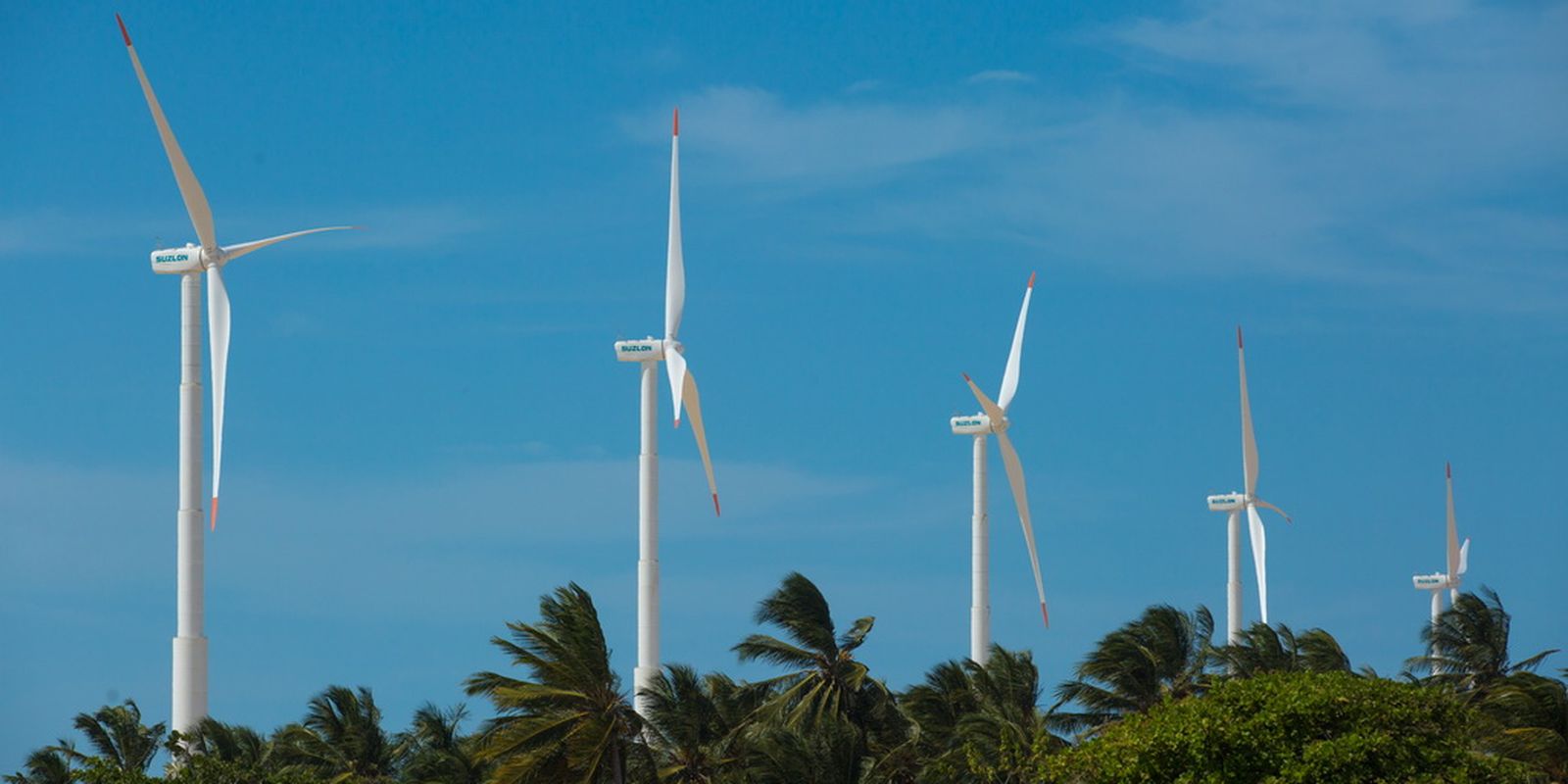On November 3rd this year, Brazil reached a record for average hourly wind energy generation, reaching 23,699 average megawatts (MWmed). The following day, a new record was reached, this time for average daily generation, with 18,976 MWmed. The numbers were released this Monday (9) by the Ministry of Mines and Energy (MME).
According to the ministry, the results “highlight the advancement of wind energy as an essential source for the country’s energy matrix”, confirming the role of this technology in the sustainable supply of energy.
Favorable weather conditions boosted the expansion of wind farm infrastructure, especially in the Northeast region, responsible for most of the growth in Brazil, the ministry said. The MME also highlights that these records reflect the positive impact of public policies to encourage renewable technologies and highlight Brazil’s commitment to the energy transition, in line with global sustainability objectives. “The results also generate optimistic economic prospects, as clean energy attracts new investors, reduces dependence on fossil fuels and generates jobs and income for society.”
Currently, the total installed capacity of wind farms in Brazil is close to 33 thousand megawatts (MW), representing around 13.5% of the national electricity matrix, according to data from the Generation Information System of the National Electric Energy Agency (Aneel ), also made available by the MME.
Benefits
According to the National Center for Natural Disaster Monitoring and Alerts (Cemaden), Brazil went through the worst period of drought, and wind energy helped to preserve hydroelectric reservoirs, due to the dry periods seen this year. “By consolidating itself as a global reference in renewable energy, Brazil reaffirms its leadership in the sector, demonstrating that wind energy is an inexhaustible source of progress and sustainable development”, highlighted the MME.















